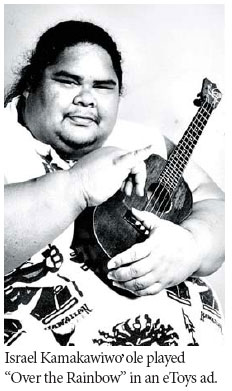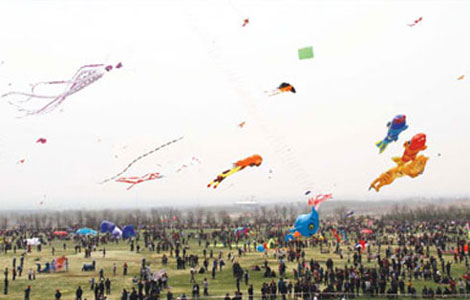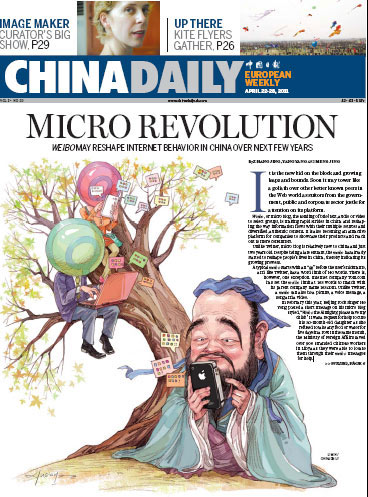Art
The ukulele's untrained melody
Updated: 2011-04-24 08:05
By Ben Sisario (New York Times)

Not long ago the ukulele was an endangered species, seen as cheap exotica or a comic prop. Now the humble, four-stringed instrument permeates the culture, turning up in pop music, TV commercials and YouTube videos. The trend is being fueled by Hollywood directors, advertisers, and musicians who have discovered how easy the uke is to use.
"It symbolizes everything that the grand polished machine of the music industry is not," said Amanda Palmer, a singer formerly with the group Dresden Dolls.
A few years ago, as a gag, Ms. Palmer strummed a uke as she sang Radiohead's "Creep." But the performance was so starkly intense it could not remain a joke, and before long she had recorded an album: "Amanda Palmer Performs the Popular Hits of Radiohead on Her Magical Ukulele."
Eddie Vedder, of Pearl Jam, has an upcoming solo album, "Ukulele Songs." ("Truth in advertising," he says of the title.)
One of the uke's great advantages is that it's so easy to learn - it's said to be almost impossible to play it badly. Even when slightly off key, it serves as a blank canvas that can accent any voice. And in the right hands, it can strip a song to its skeletal core.
"Nobody picks up the ukulele who is later going to go back and Auto-Tune their vocals," said Stephin Merritt of Magnetic Fields, whose 1999 triple album, "69 Love Songs," featured the ukulele extensively and was a landmark in its revival. "It definitely sounds untrained, and therefore goes with untrained vocal styles."
The current ukulele craze is only the latest in its long history. A descendant of an instrument called the machete that Portuguese laborers brought to Hawaii in the 19th century, the ukulele made a mainland splash in 1915, at the Panama-Pacific International Exposition in San Francisco.
In 1999 a wistful version of "Over the Rainbow" by Israel Kamakawiwo'ole was used in a commercial for eToys, and sparked a ukulele ad frenzy.
It's not hard to see the attraction. Ukes invoke innocence, sincerity and nostalgia for a pre-rock 'n' roll era.
And for advertisers, they offer instant humanization.
"It's shorthand for lightness of tone," said Jim Beloff, who wrote "The Ukulele: A Visual History." "It says, 'We're good guys at heart.'"
Local strumming societies have emerged, aided by the Internet. And the instrument has popped up in the indie-rock world: Mirah, Beirut, Dent May, Noah and the Whale, Buke and Gass, even a Neutral Milk Hotel tribute band called Neutral Uke Hotel.
(Paul McCartney paid tribute to the ukulele-loving George Harrison at the 2002 "Concert for George"; four years later Jake Shimabukuro's virtuoso "While My Guitar Gently Weeps" became a YouTube hit.)
"This is the age of the democratization of music," says Ms. Palmer. "And in a recession, when you have a $20 instrument and there's a big musical renaissance, anyone will want to join in."
Or, as Mr. Vedder put it, "My inspiration was to wrestle with the thing, to give it something different from the way it's been played before. Can I make this happy little instrument as depressed as I am?"
The New York Times
E-paper

Blowing in the wind
High-Flyers from around the world recently traveled to home of the kite for a very special event.
Image maker
Changing fortunes
Two motherlands
Specials

Urban breathing space
City park at heart of Changchun positions itself as top tourism attraction

On a roll
Auto hub Changchun also sets its sight on taking lead in railway sector

The stage is set
The Edinburgh International Festival will have a Chinese flavor this year.
